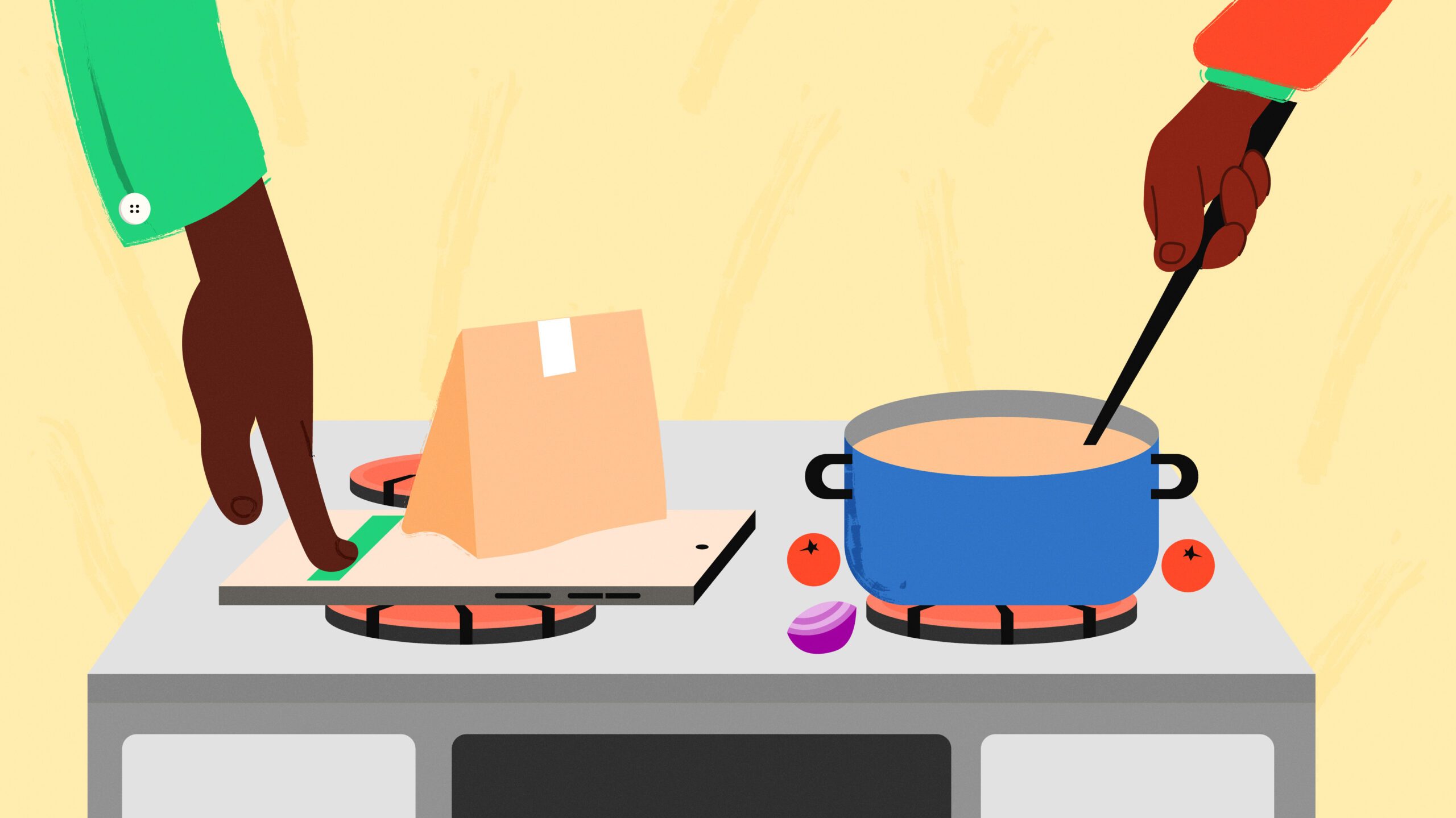
Before he moved to Abeokuta, Muhammad Bello had no choice but to cook his food; in Ifo, where he was observing his NYSC, there was no decent place to order food. But since he arrived in Abeokuta, Muhammad only cooks once every week, and that will be a simple meal that requires a couple of minutes. For others, he orders.
“It’s easier because we now have apps that have access to all these eateries. There is this app that we use here. It is called HeyFood. That app even creates your own account details to be able to make transactions to the places we order from.”
Four out of five young people I spoke to confirmed that they prefer to order or buy food instead of cooking. I have, on many occasions, read surprises on young people’s faces like me whenever I mention that I cook everything I eat. I often argue that cooking saves cost but they insist it doesn’t, especially when you calculate the amount of time and money expended on cooking. A constant argument on X is whether cooking food saves money than buying food but the recent economic reforms and the unprecedented high cost of living have somewhat levelled the argument.
In Nigeria’s tech industry, there is a growing focus on food-related solutions. Previously, fintech solutions dominated the industry, but now, startups such as Glovo, Mira, and Chowdeck are emerging to make access to food easier. Food vendors are also utilising various platforms such as X, Facebook, Instagram, and WhatsApp to reach their customers. Social media platforms like TikTok and Instagram are witnessing a surge in food-related content. For instance, the #food hashtag on TikTok has over 555 billion views, and the #Nigerianfood hashtag on Instagram has over 1.4 million posts, indicating a growing interest in food beyond sustenance. Many Nigerians are embracing the convenience that technology brings to their access to food.
However, the growing dependence on technology for food access is sparking discussions about the necessity for stronger regulations and consumer awareness to ensure the quality and authenticity of delivered food. Some people like Stepahie and Wunmi have taken to social media to report incidents where spoiled food has been delivered to them, raising concerns about the standards of food safety in the industry. Some complain about late delivery and sometimes how their order is packaged. There have also been narrations of delivery people altering their meals or taking some out of it.
Therefore, the foodtech startups need to work on maintaining quality control measures, such as sourcing from reliable suppliers and implementing proper storage and transportation protocols. Establishing trust with consumers is vital for these startups, especially in a world like Nigeria where people are quick to share reviews on their social platforms.
As the technology-driven food industry continues to evolve in Nigeria, finding the right balance between convenience and health remains a major discussion for both startups and consumers. One reason is that Nigerians have a strong attachment to food; besides its nutritional importance, it is also cultural. When they dine out, they expect the amala to be fluffy, and they want their jollof rice to have that distinct Nigerian flavour. Hence, it won’t work when the amala is delivered long after its fluffy state, or the jollof rice right before it gets spoilt. It’s not enough for food startups to simply deliver, it is also ensuring that it is delivered on time, such that the meals are fresh, unspoilt and meet customers’ expectations.
As Nigerians grow an increasing taste in food, and in the accessibility and convenience of getting quality food, it has become important for tech startups to understand that Nigerians’ affinity with food is special, and then act accordingly to ease access to quality food and take that stress off people.
“Once I’m able to sort that (food), then I can think of other things,” Muhammad says.
– BellaNaija



